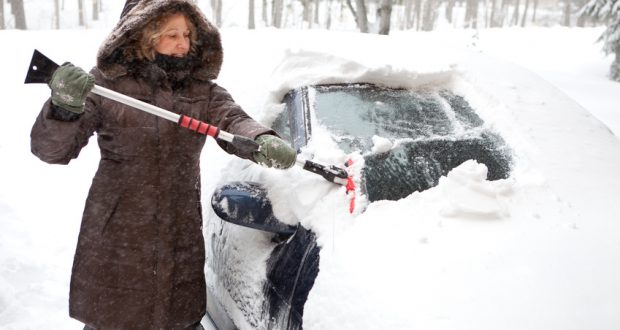Could a change in the weather make an impact on your blood sugar? Believe it or not, it can… and it does! Cold winter weather brings special considerations for blood sugar that we simply don’t have to worry about in the warm summer months.
The first consideration is obvious – we don’t want to be outside as much when it’s cold! Not only is the cold air and snow uncomfortable for long periods of time, just consider the effort it takes to prepare; layers of clothing, socks, boots, scarves, jackets, hats, gloves, etc. all that trouble to do something as simple as walk the dog!
Due to the elements, we tend to stay indoors far more during the winter months. This means we are negatively affecting our blood sugar levels in a few ways – and aren’t even aware of it.
Firstly, without regular physical activity, blood sugar levels will run consistently higher. Don’t let the fact that the snow’s a-blowing turn you into a couch potato. There are several ways to get moving while indoors – from jump rope to yoga, from cleaning house (yep it counts!) to simple stretches, remind yourself to do some form of activity each day.
Secondly, while sitting around bored, we are far more likely to reach for something to eat to occupy ourselves… and no one reaches for broccoli so don’t even try that! In the winter, we crave warm, comforting foods like mashed potatoes, macaroni and cheese, soups and stews.
While we can easily fall into the trap of high-carb comfort, there are simple ways to tweak your winter-time favorites into low-carb lusciousness. Almost mac-n-cheese for example, is hardly a sacrifice of flavor or comfort – you still get plenty of both!
Cold weather can also impede, or prevent altogether, access to fresh meats, fruits, and vegetables, especially from organic sources. For most of us, the grocery store still stocks the essentials, but beware of “the switcheroo.”
Use caution; out-of-season fruits and vegetables may have been treated with pesticides, preservatives, and other chemicals to force availability year-round. Buying foods that are organic, non-GMO, and in-season not only results in a diet that is nutritious, but one that is fresh and at its peak of flavor.
The winter months also bring holiday seasons for many cultures. Large gatherings of family and friends, travel, and tempting treats can make blood sugar management more difficult.
If you are traveling for your holiday celebrations, don’t forget to bring your glucometer, extra test strips, and all of your medications with you.
Continue to test your sugar regularly, which can be difficult to remember in the hubbub of the holidays, but is very important. Winter chills not just the bones, but the hands, as well, which can make testing more painful. Try warming your hands near a heater or around a decadent cup of hot chocolate before testing to make it more comfortable.
When it comes to the food, if you’re hosting the holiday meal, you have control over what you serve, and can ensure there are smart choices on the menu. If you are an attendee of a holiday party elsewhere, offer to bring a healthy dish to contribute to the feast.
When it’s time to dig in, use a smaller-sized plate to encourage appropriate portion sizes. Fill at least half of that plate with vegetables. Green beans, and Brussels sprouts are two frequently found holiday veggies. Don’t be opposed to bringing along your favorite low-carb food hack, like mashed cauliflower instead of mashed potatoes!
By limiting your portion sizes and only indulging on special occasions (like the holidays), you can still enjoy your favorite dishes. Choose foods you really love, don’t waste carbs or tummy room for something that isn’t really worth it.
On that note – no, you cannot simply take an extra pill or two and then eat all of the pumpkin pie. That’s not how it works. By over-medicating so that you can over-indulge you wreak havoc not only on your pancreas and blood sugar, but put other organs like your heart, liver, and kidneys at risk, as well.
In all things, especially in diabetes management, balance is key. As the winter season settles in, be mindful of the potential effects on your blood sugar. Move a little each day, eat right, and test your sugar often. It will be spring before you know it!
Sources:
http://www.diabetes.co.uk/diabetes-and-cold-weather.html
 Diabetic Kitchen
Diabetic Kitchen





Recent Comments